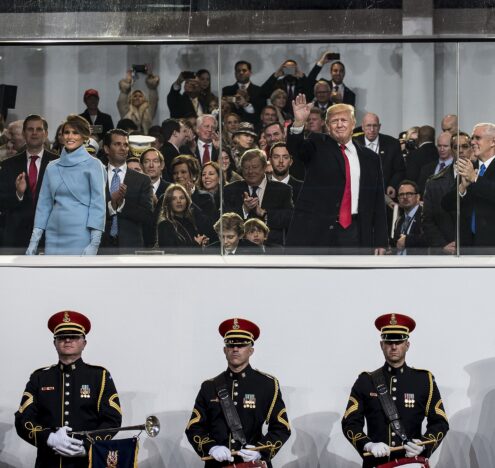On Jun. 27, 2022, Indian authorities arrested Mohammad Zubair, the co-founder of Alt News, a fact-checking independent website that flags false information on social and mainstream media, in New Delhi on the charges of “hurting religious sentiments” for a tweet shared in 2018.
Close watchers of India’s media believe that Zubair’s arrest is connected to the derogatory remarks made by former Bharatiya Janata Party (BJP) spokesperson Nupur Sharma against Prophet Mohammed on May 26, 2022. Zubair was one of the first journalists to point out her remarks, for which she received heavy criticism internationally and domestically. A local organization for Sunni Muslims lodged a complaint against Sharma on May 28, followed by many more. But she is yet to be arrested for her hateful remarks. Zubair, on the other hand, was arrested on shaky grounds. He was finally granted bail on Jul. 20, 2022.
Zubair was arrested at the same time journalist Rana Ayub’s Twitter account was withheld. Author of “Gujarat Files: Anatomy of a Cover Up,” and a vocal critic of the far-right Hindu nationalist government, Rana quoted a tweet in which she hinted that there is a looming fear around the demolition of the Gyanvapi mosque located in Uttar Pradesh. She accused the local government of Banaras of wanting to further humiliate Muslims. She was also reportedly barred from flying outside the country on Mar. 29, 2022. However, she isn’t the only journalist who was stopped without offering any explanation. At least 43 others have been kept on look-out-circulars — a way for the police to keep a tab on journalists and potentially stop them from leaving the country.
In India, protecting politicians while attacking journalists is a lot more common than one would like to believe. Under the Modi government, journalists have been targeted continuously, making those critical of the government even more vulnerable than usual. Along with attacks, many journalists have complained of “geo-blocking” — the practice of restricting access to the Internet based on the user’s location. This new wave of attacks is not only detrimental to freedom of speech but also poses a real threat to India’s democracy.
PRACTICING GEO-BLOCKING
The Modi government relies heavily on repressive measures to silence its opponents, especially those critical of the government. Prior to Narendra Modi’s election, the amount of fear and intimidation minorities —especially Muslims and Christians — faced wasn’t as palpable as it is now. Communal tensions, polarization, radicalism, and division across different communities have been on the rise as the BJP’s support base, that is attracted to Modi’s Hindu-centric hardline policy, has grown.
Since August 2019, immigration authorities have barred journalists, mostly from Indian-administered Kashmir including Pulitzer winner Sana Irshad, Zahid Rafiq, Gowhar Geelani, and Akash Hassan, from flying outside India. human rights defenders, including the chairman of Jammu and Kashmir Coalition of Civil Society Khurram Parvez, who has been imprisoned in Tihar since Dec 2021, and Aakar Patel of Amnesty International India, have also been reportedly prevented from flying outside the country. Many observers in Kashmir believe there could be an official policy of pressuring and imposing structural restrictions on the movement of the journalists involved in critical reporting in the area.
Under the Modi government, journalists have been targeted continuously, making those critical of the government even more vulnerable than usual. Along with attacks, many journalists have also complained of “geo-blocking.”
However, it’s not just journalists from Indian-administered Kashmir that are vulnerable. Currently, dozens of noted activists, journalists, and academics are languishing in different jails. An independent study conducted by Free Speech Collective found that at least 200 journalists were attacked in 2020, and out of 154 cases of arrest, detention and interrogation of journalists, 73 cases were recorded between 2010 to 2020. Reporters Without Borders has also outlined the coordinated hate campaigns waged on social media networks against journalists who dare to speak or write about subjects that annoy Hindutva followers, many of whom call for killing journalists. The 2020 Human Rights Report by the US Department of State noted that at least 55 journalists and editors were arrested or booked for reporting on the COVID-19 lockdown.
There have been several similar reports that have documented how Indian authorities are invoking national security, defamation, sedition, and hate speech laws as a precursor to curb critical voices in the media. As a result, media organizations are self-censoring due to strict surveillance and pressure from coercive measures. Siddharth Varadarajan, the editor of The Wire, admitted that Indian law enforcement agencies continuously invoke sedition and use the Unlawful Activities (Prevention) Act to “handle” independent media.
The story of Red Fish, a digital media outlet owned by a subsidiary of Russia Today, is especially illustrative. On Feb. 14, 2022, Red Fish released the trailer of a documentary that compared Kashmir with Palestine. The trailer was met with severe outcry amongst the Indian public and government, compelling the Russian embassy in New Delhi to issue a statement distancing itself from the content and Red Fish itself. “The misleading label of this channel on Twitter as Russian state-affiliated media doesn’t make it automatically related to any state support. The channel functions independently with regards to its editorial policy,” the Russian embassy stated. The documentary was postponed on the pretext of security threats and regressive online vigilantism. Within 24 hours, India’s major newspapers, TV stations, and prominent journalists from India and the United States were framing the teaser as a bilateral issue between Russia and India.
On Jun. 23, 2022, Twitter complied with an Indian government order to remove Red Fish’s social media account. The action to geo-block Red Fish in India came a few months after the platform was forced to postpone its publication after pointing out the similarities between Israel and India in terms of sharing intelligence, using drones to surveil and keep tabs on civilians, offering domicile certificates to outsiders to influence local demographics, forcibly taking over land — and basically instilling fear in Palestinians and Kashmiris.
“We have received no justification for this move, with Twitter only citing India’s notorious Information Technology Act which came into force early last year and has since been used to step up the repression of dissenting voices,” the media outlet said in a statement on June 24.
Managing director of Red Fish’s German offices Lizzie Phelan believes that the ban was the extension of escalating repression the country has suffered under BJP rule. Lizzie said, “Asking questions around the Kashmir occupation means questioning the entire ideology of the Hindu nationalism, which the Indian government uses to distract Indians, from its neoliberal politics that has been proven devastating not just for Kashmiris but India’s entire working class.”
“[The] Kashmir topic continues to be an ultimate taboo in Modi’s India in the same way that any criticism of Zionist settler-colonialism remains in Israel,” she added.
Unfortunately, Red Fish is not alone. Last year, at least 500 accounts were removed and the visibility of the number of hashtags critical of the government was also reduced. Within six months of 2021, Facebook has received 45,000 requests for data from the Indian government that is operating under pseudonyms. Prior to that nearly 10,000 social media accounts were blocked in 2020, including the handle of Caravan magazine and several other activists. More recently, this June, 80 Twitter posts were geo-blocked on the pretext of violating the 2021 Information Technology Rules.
The social media accounts that supported farmers’ street protests in India, Kashmir solidarity groups, and other hashtags demanding the resignation of Modi were also blocked. Among the handles blocked by Twitter at the request of authorities included @StandWithKashmir and @Standup4farmers.
BANNING CRITICAL VOICES
While the corporate media outlets that are seen as brazenly supportive of the BJP-led government have flourished in the past few years, the space for critical media outlets like Caravan, News Click, Newslaundry, and The Wire has slowly choked. “The pattern is that the emerging spaces of alternative media should be crushed before they emerge,” journalist and author of “The Free Voice: On Democracy, Culture and Nation,” Ravish Kumar argued.
Undoubtedly, India’s critical journalism remains at an all-time low. According to senior journalist P. Sainath, the status of present-day media in India is the “least representative, most exclusionist and majorly affected due to corporate ownerships.”
India’s position in the World Press Freedom Index has also fallen by several spots, now ranking at 150 out of 180 listed countries. According to co-founder of Newslaundry, Abhinandan Sekhri, whose office was also raided by IT officials on the pretext of doing surveys in September 2021, such a raid “was a clear intimidatory and blatant attack on their rights, and therefore press freedom.”
Similarly, the five-day-long scrutiny of Prabir Purkayastha, and Pranchal and Geetha Hariharan of the Delhi-media organization News Click was condemned by several journalists organizations, including the Delhi Union of Journalists (DUJ) and Editors Guild of India terming it the continuation of the series of cases that have been registered against news outlets like Caravan.
“The raids are ominous, clearly aimed to intimidate and browbeat independent and critical voices that disagree with the government on contemporary issues,” DUJ stated.
Talking about the raids, Purkayastha stated: “The 113-hours long raid was the outcome of the critical reporting our media outlet was involved in, especially during the farmers’ five-month-long protest. Since there is a law enforcement problem in India and conviction rates are less, going through the process in itself becomes a punishment.”
Indian authorities have been regularly blamed by a large number of activists, unions, and rights organizations including Human Rights Watch and Amnesty International India, for using laws as an instrument of shutting down criticism: “That is exactly what today’s situation in India is… the strategy of big capitalists who have enough money and muscle power of using legal people who can file case after case against people,” Prabir admitted.
There is a clear pattern of intimidation and heavy use of force with which the Modi government is governing India. Dissent and criticism are treated as anti-national. And all those critical voices that raise questions or show resistance to pro-corporate government policies are compelled to pay heavy prices. The tools used by the state apparatus vary between surveillance, arrests, raids, and invoking different criminal and draconian laws. Amidst such a grim situation, it is the soft image of India as the so-called “largest democracy” that has seen a major hit.
Umer Beigh is a journalist from Indian-administered Kashmir. He is a graduate of the Nelson Mandela Centre for Peace and Conflict Resolution at Jamia Millia Islamia in New Delhi, India.




















